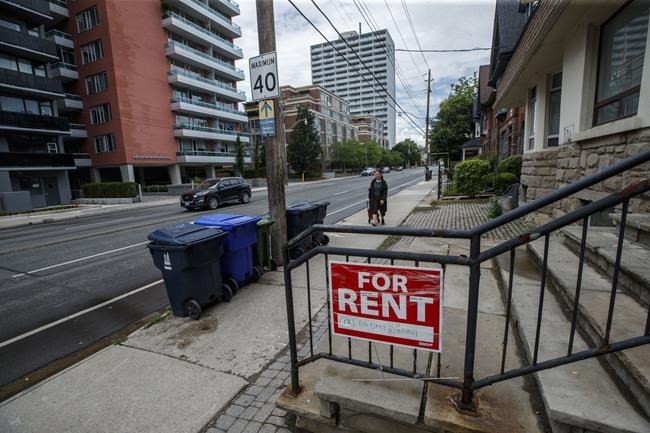VANCOUVER — Renters across the country faced record low vacancy rates and record high rent increases in 2023, but Statistics Canada says Toronto and Â鶹´«Ã½Ó³»residents who don't own their homes face the greatest financial pressures.
The agency says survey results over the last few years show renters are more prone to reporting lower quality of life than homeowners, especially in Â鶹´«Ã½Ó³»and Toronto.
Toronto and Ontario residents were "likely" to report being in good mental health between 2021 and 2023, but Vancouverites "were significantly less likely to report excellent or very good mental health than those living in the rest of British Columbia," Statistics Canada said.
It says younger Canadians surveyed in 2023 were less likely to report "high overall life satisfaction" and "excellent or good mental health" compared with older Canadians 55 and up.
Canadians between 15 and 54 also have seen their hope for the future in decline compared with those 55 and up, "and they were more likely to feel lonely than older Canadians."
"Younger Canadians tend to face greater challenges than older age groups when it comes to shelter costs," Statistics Canada said.
Nationally, just over 51 per cent of Canadians said they had "high overall life satisfaction," compared with about 48 per cent of Ontario and B.C. residents on average.
About 45 per cent of Vancouverites and 46 per cent of Torontonians reported "high life satisfaction," with housing in the two cities "significantly less affordable than the national average."
Statistics Canada says those living in Toronto and Â鶹´«Ã½Ó³»in 2021 through 2023 reported lower life satisfaction than others in B.C. and Ontario, and also had a lower sense of "belonging to their community."
The agency said financial strain is a "a factor that may be associated with quality of life," as shelter costs dominate household budgets.
In 2021, the agency said, less than 19 per cent of Canadians reported difficulty making ends meet, jumping to nearly 27 per cent in the second quarter of 2023.
This report by The Canadian Press was first published Feb. 19, 2024.
The Canadian Press
Note to readers: This is a corrected story. A previous version said Toronto and Â鶹´«Ã½Ó³»residents were much less likely to report good mental health. In fact, StatCan said Â鶹´«Ã½Ó³»residents were less likely to report good mental health compared with other British Columbians.



